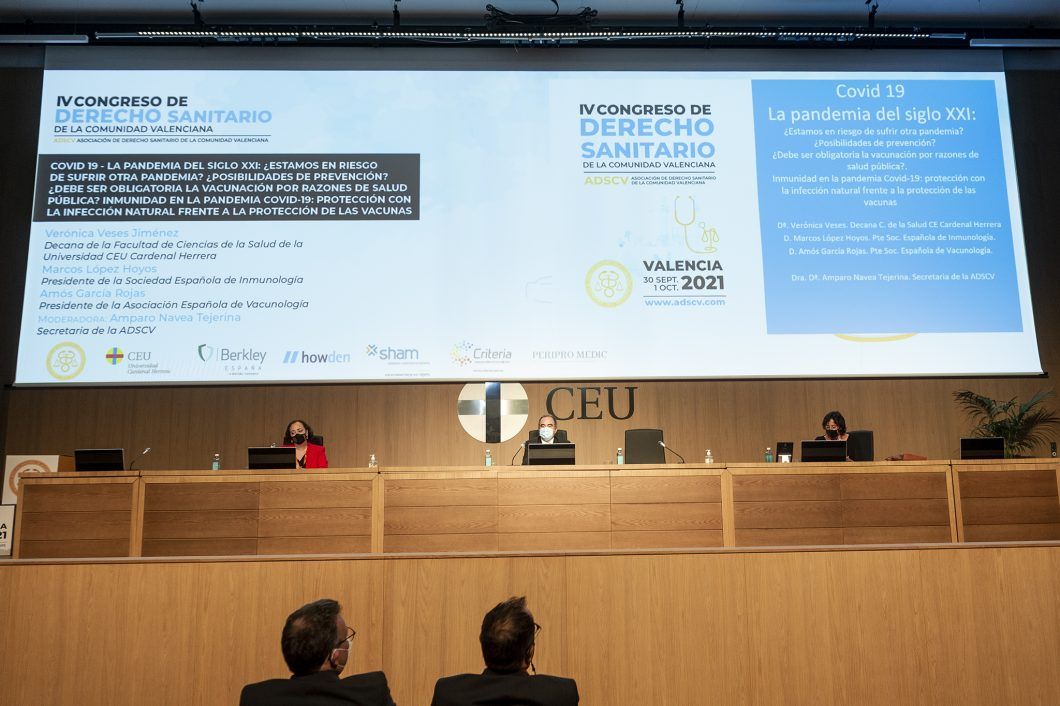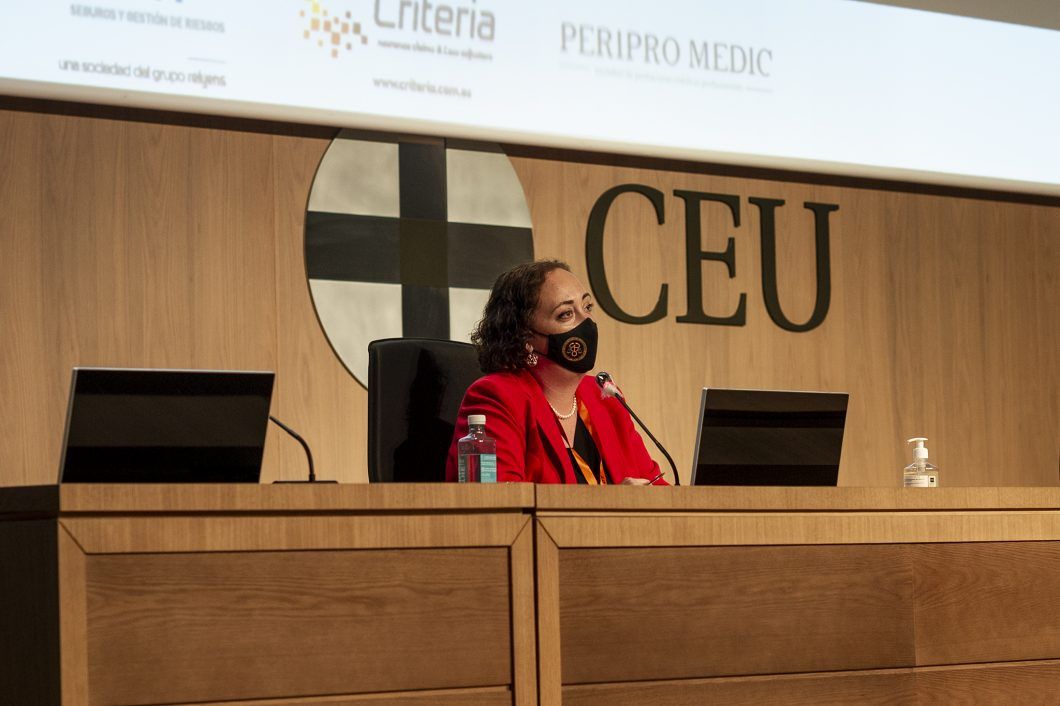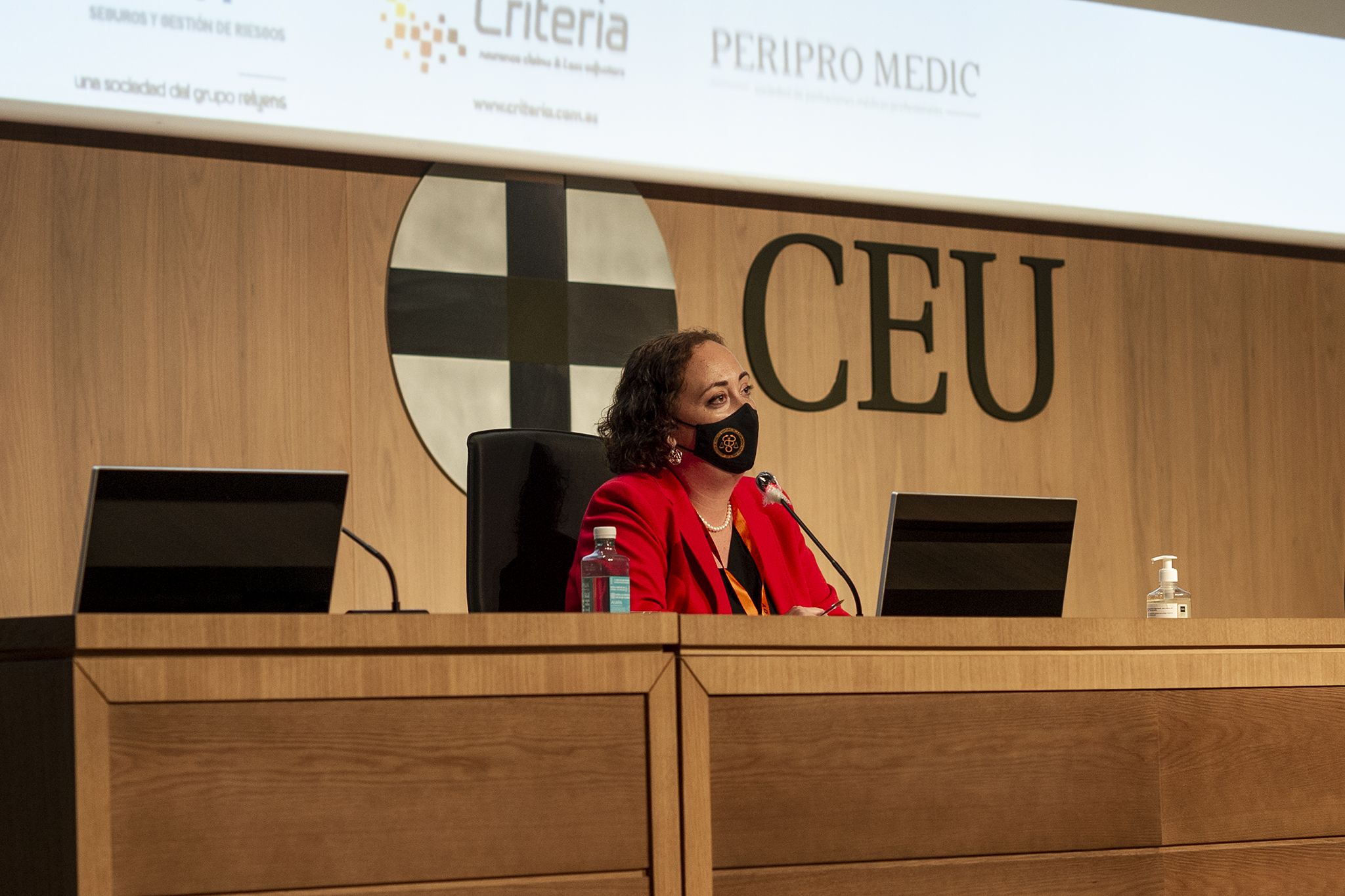The Dean of the Faculty of Health Sciences gave her verdict on the risk of future pandemics at the IV Congreso de Derecho Sanitario de la CV, a conference on health law held at the CEU Cardenal Herrera University

The WHO estimates that by 2050 more people will die of infectious diseases than of cancer. This was just one of the striking things that Dr Verónica Veses, Dean of the Faculty of Health Sciences, had to say to attendees during her lecture at the conference on health law in Valencia, the IV Congreso de Derecho Sanitario de la CV.
A lecturer and researcher in microbiology, Dr Veses talked about the possibility of future pandemics occurring: “Epidemics cannot be avoided, but what we have to do is stop them from becoming pandemics.”
For Dr Veses, to counteract future pandemics, “it is essential to provide healthcare professionals with biological and epidemiological training, to modernize primary care and give healthcare greater technical and human resources.”
Can we prevent future pandemics?
In her lecture, Dr Veses stated that “according to the WHO, there have been 4,654,548 COVID-19 related deaths. Although it’s mortality rate is 2%, its infection rate is very high and the long-term effects of suffering this disease are still under investigation.”
“In microbiological terms, the COVID-19 pandemic comes in eighth in the ranking, but it caught us on the wrong foot because we had a false sense of security, thinking we had everything under control,” she said.

“We have to be ready for the next one.” With this thought in mind, she sees the One Health strategy as the way forward to prevent future pandemics.
“The best strategy to be ready for future epidemics is to take a holistic view of health, by understanding the interaction between human and animal health and the environment we live in.”
In her lecture, Dr Veses pointed out that Spain devotes 1.3% of its GDP to research, whereas the European average is 2% “It’s not that the rich countries can afford to do research, it’s that they’re rich precisely because they devote more resources to research,” she said.
Dr Veses, Dean of the CEU UCH Faculty of Health Sciences, was talking on the COVID-19: the 21st Century Pandemic panel at the conference, alongside Dr Amós García, President of AEV, the Spanish Vaccinology Association, and Dr Marcos López, President of SEI, the Spanish Immunology Society.
The two other speakers both stressed the importance of vaccination. For Dr López, “we should forget about herd immunity and we should all go and get vaccinated. The vaccines are safe for anyone over 12. There’s post COVID-19 immune memory which lasts 6-8 months. There is post-infection protection at six months and also for the vaccine. Both situations protect use against variants of this virus.”
470 people attended the conference in person and online. The meeting was structured in terms of eight expert panels and was inaugurated by Juan Carrión, President of FEDER, the Spanish Association for Rare Diseases.







